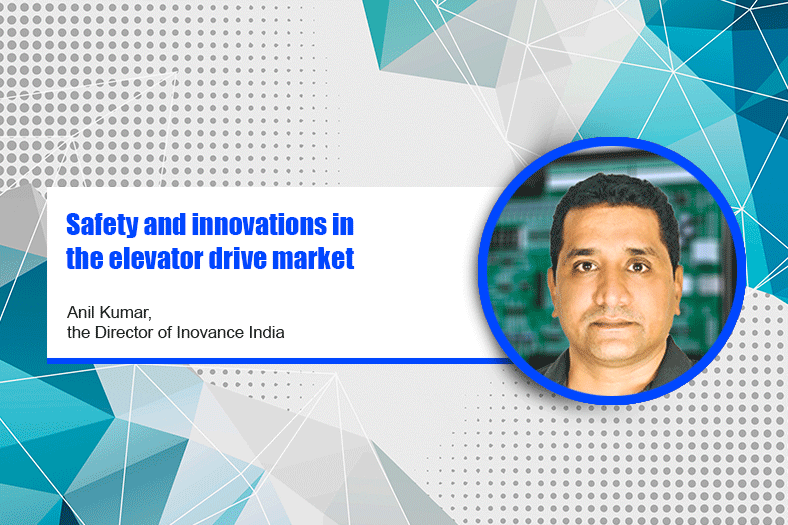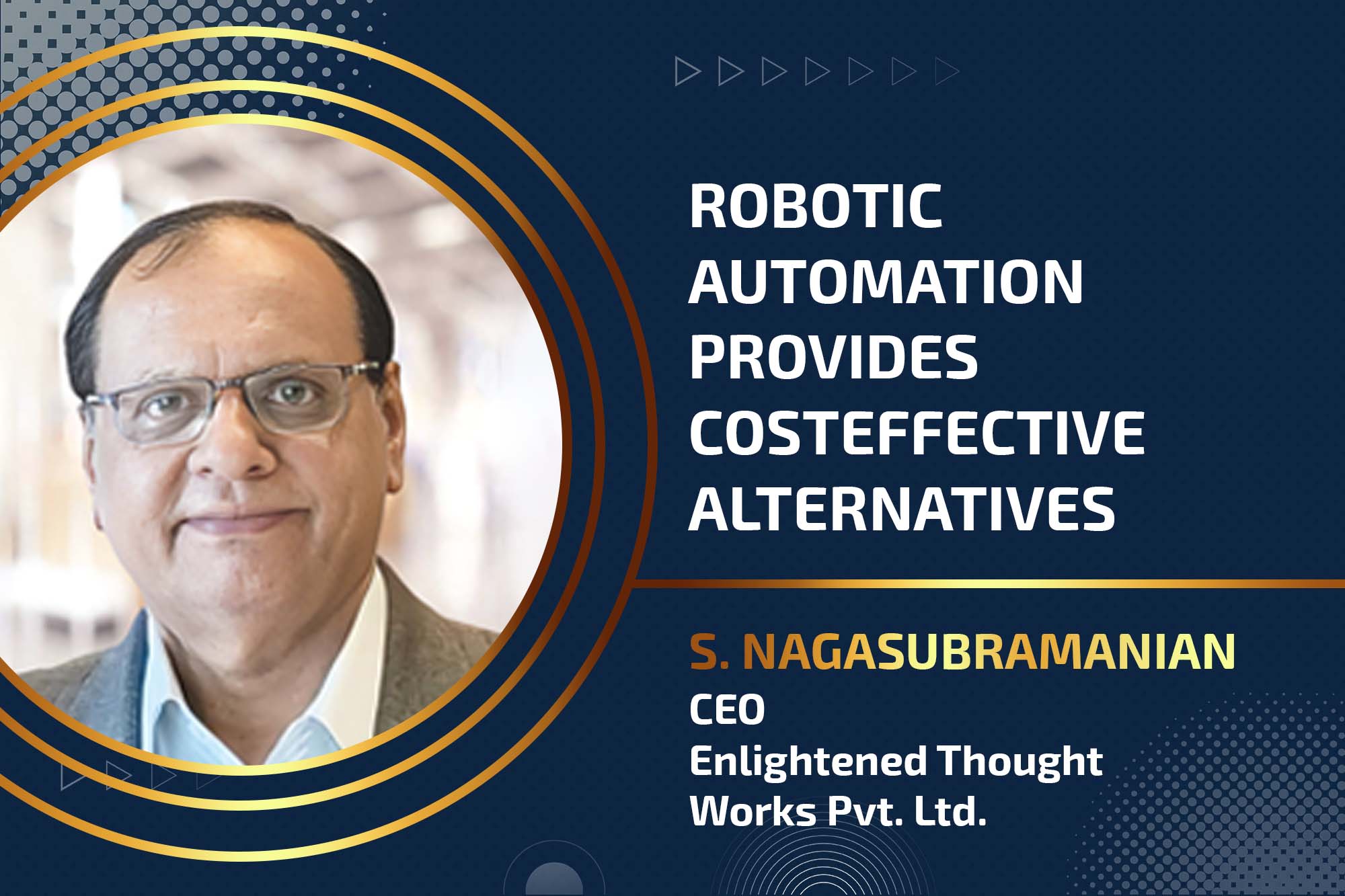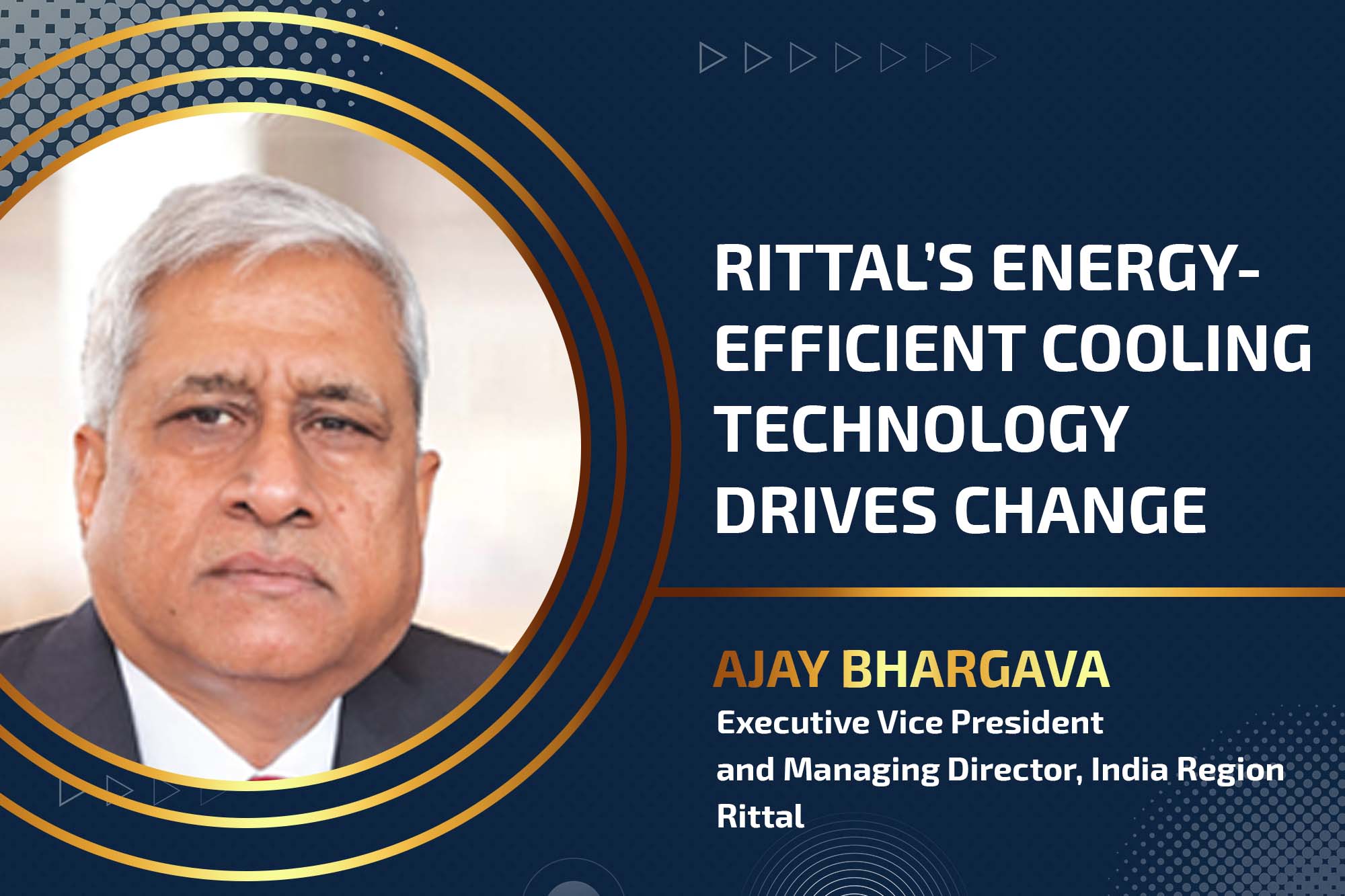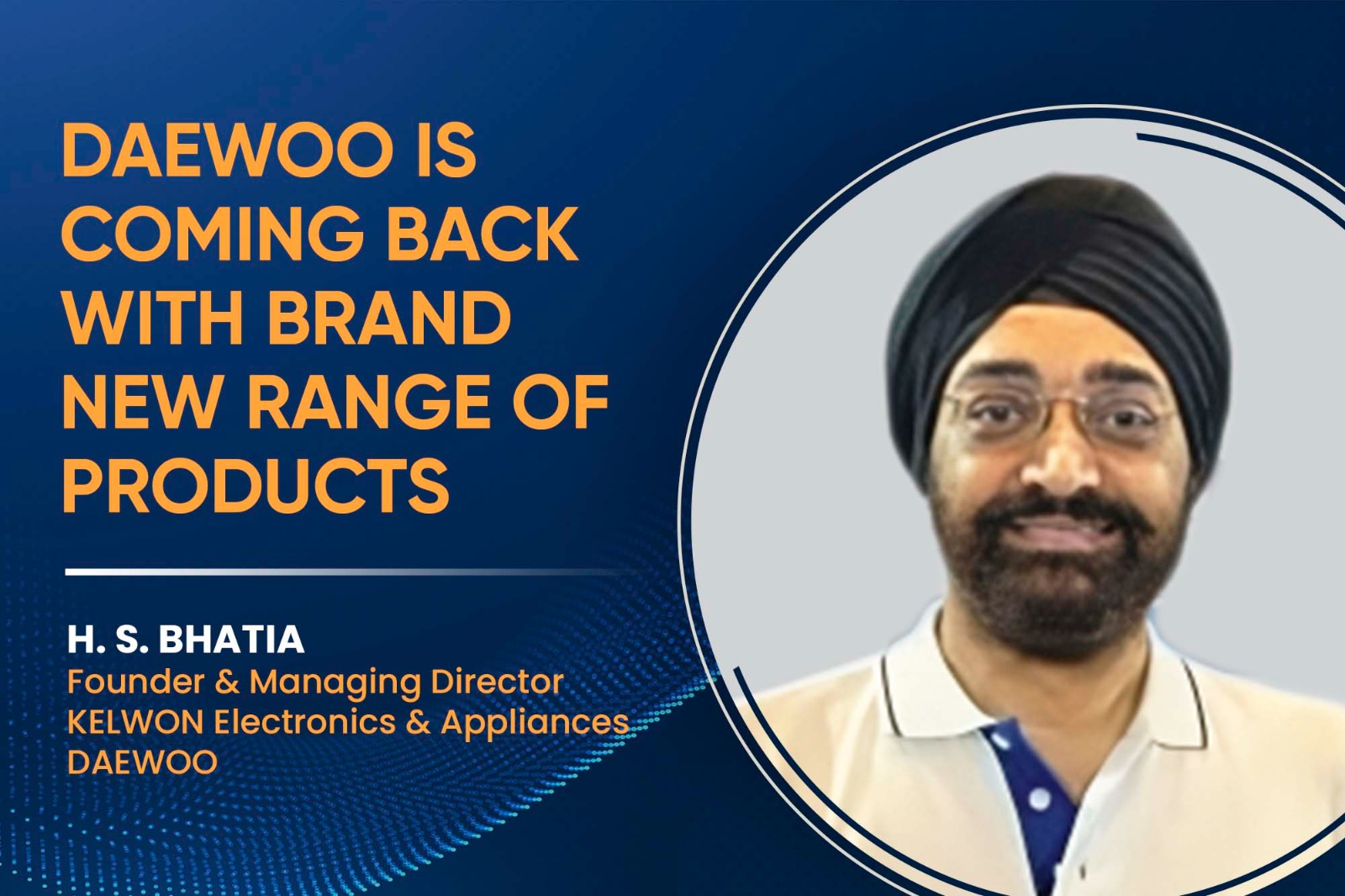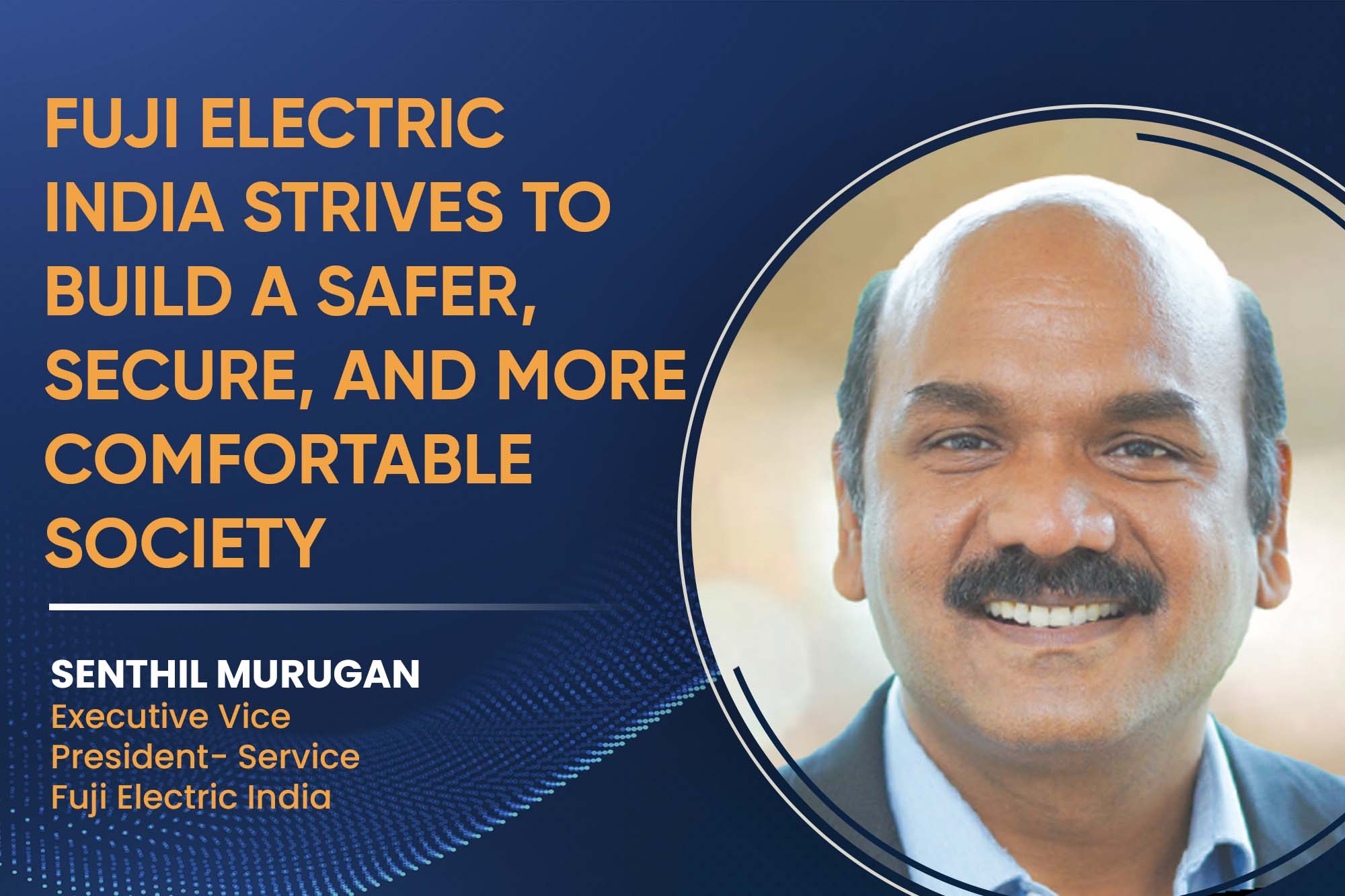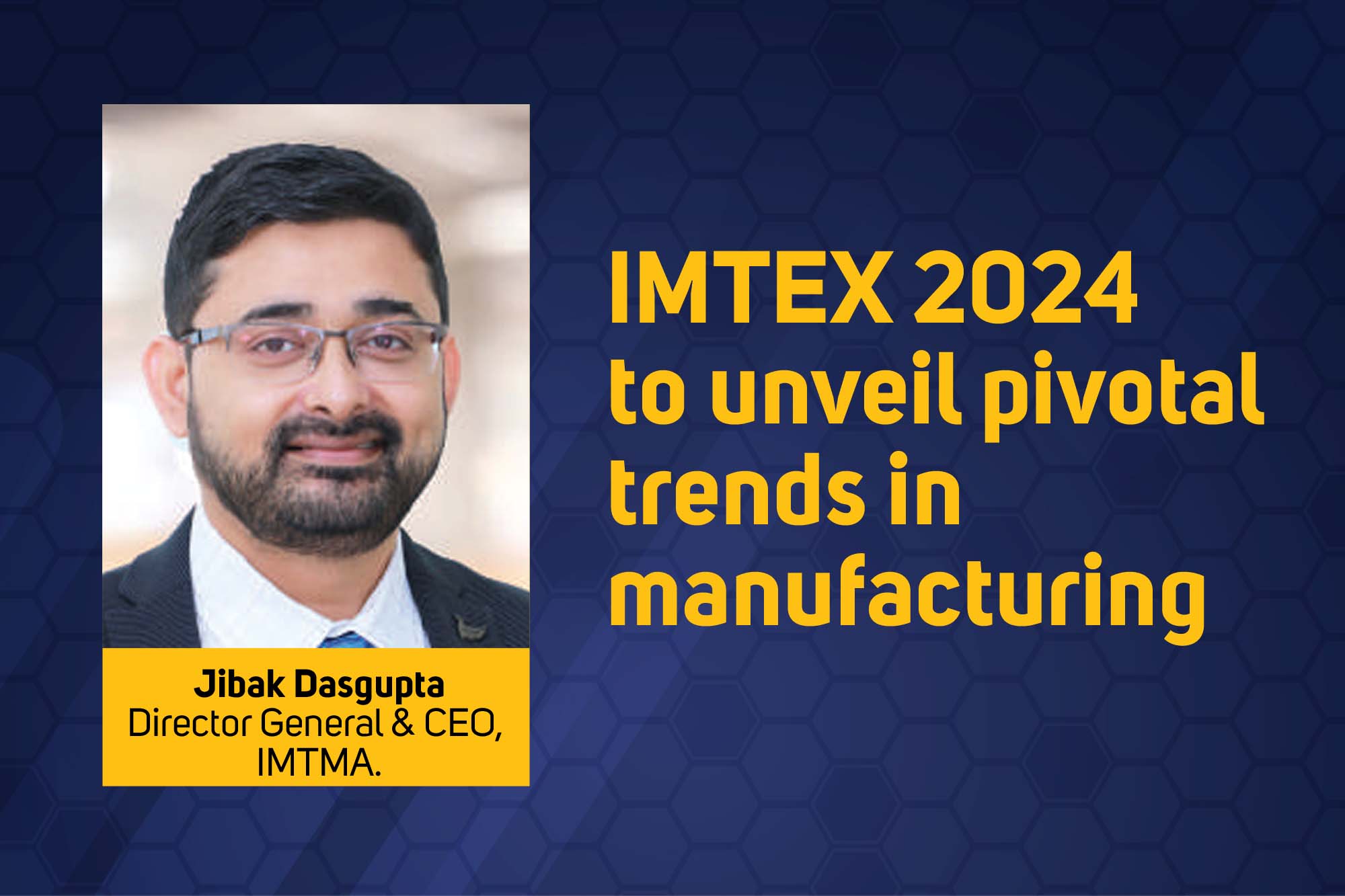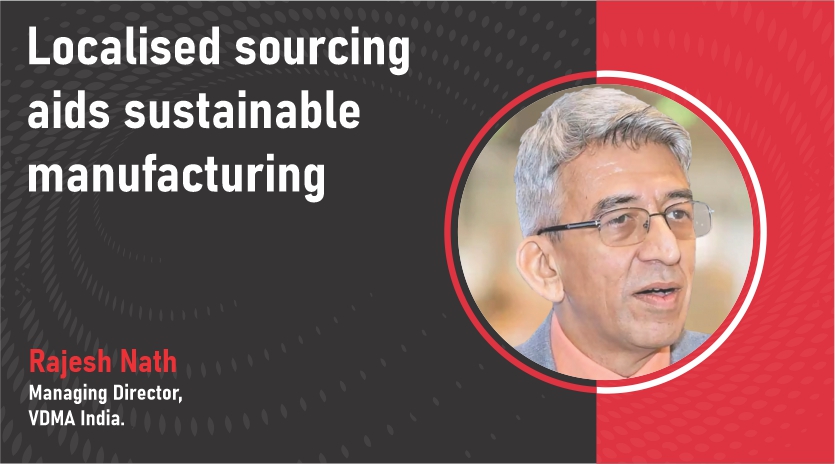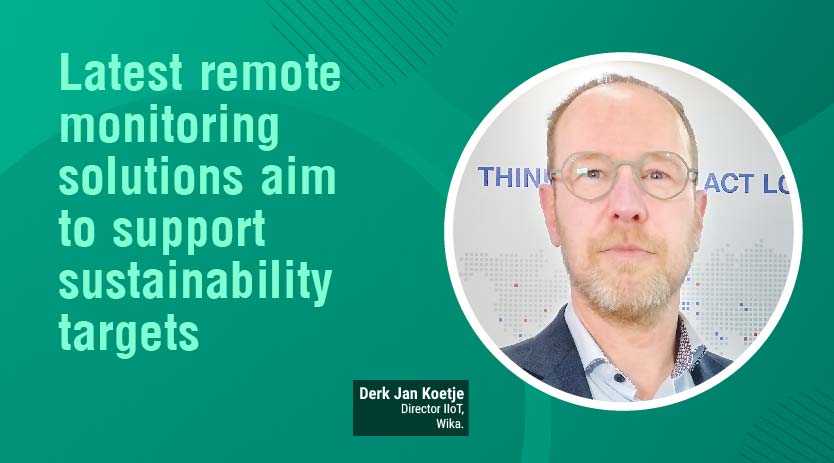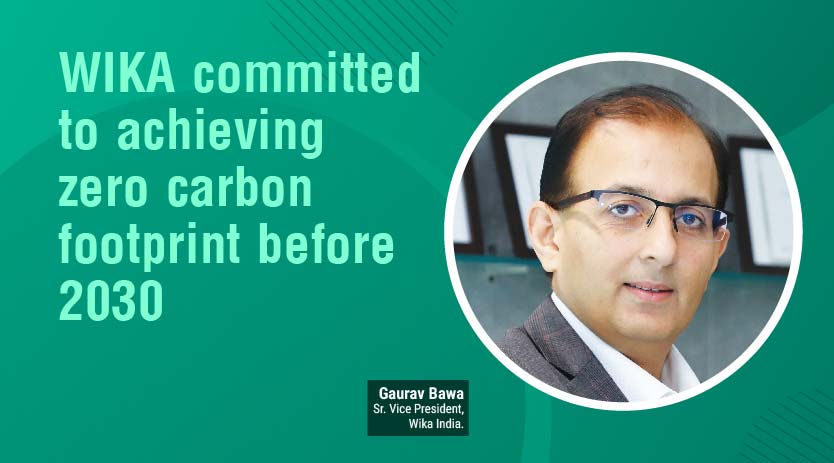Safety and innovations in the elevator drive market
By OEM Update Editorial May 7, 2020 3:35 pm
Safety is a major focus for us right now, and we are always looking at how to enhance safety in our elevator products.
In a discussion, Anil Kumar, the Director of Inovance India, talks about safety in elevators; and about how robotics, drives and controls are contributing to innovations in both the industrial automation and elevator sectors.What are your recent product launches?
Inovance is constantly innovating in many different elevator and factory automation fields. One recent example is our innovative machine room less (MRL) solution, and we are also moving forward towards Internet of Things (IoT) technology for elevators. All our products are already communicating digitally, and so IoT is a natural extension for us, and we already have IoT modules we can connect with, such as 4G. Recently, we have introduced a range of elevator products with EN81 safety certification and other new features.
How does the drive and control segment contribute to factory automation and robotics?
Today, with such radical growth in the factory automation and robotics segments, Inovance is successfully developing many relevant new products. These include AC and servo drives, as well as robotic solutions. Advanced and efficient drives and controls are very important in improving production quality and manufacturing capacity across industrial automation applications.
What are the new innovations in drives and controls, factory automation and robotics that are pushing its growth?
There’s a lot going on at Inovance in terms of drives and controls, factory automation and robotics. One of the areas we are most excited about right now is EtherCAT-based servos. We are currently releasing a range of EtherCAT-based single and multi-axes servo products with STO.
A TechSci Research report had projected a 12 percent increase in factory automation during 2015-2020, but the increase was purportedly only 10 percent. What caused the lag?
Well, I cannot comment directly on the TechSci report as I have not seen it, but if there was a lag, my guess is that it was because of the elections last year and the problems we faced with declining infrastructure investment as a result of it. There were also problems when the new cash economy policies came in. While such policies were clearly needed, they did cause a short-term cash crisis that affected all sectors of the economy, including industrial automation. However, Inovance India continues to be one of our most important markets.
What are you doing to cope up with the current economic slowdown?
Well, we would always look to grow our business anyway, whether or not there is an economic slowdown. But currently (due to the slowdown in infrastructure), we are particularly targeting high growth sectors such as electric vehicles (EVs) and various industrial automation segments.
What are the latest safety norms and technologies and how far are they being adopted by manufacturing companies?
Today the elevator industry is more focused on safety. So, we are well prepared for it and have certified our controllers with a leading European elevator safety organisation. We have got elevator products with EN81-20/50 compliance, which is the European safety standard for elevators. Safety is a major focus for us right now, and we are always looking at how to enhance safety in our elevator products.
What is your view on Industry 4.0 making manufacturing facilities vulnerable to external attacks?
Cybersecurity is a big concern for companies in India that are implementing Industry 4.0 or Industrial IoT solutions. Many manufacturing companies are not yet properly geared up to handle such attacks right now. Inovance is always working on developing the highest levels of security for our products, to reduce the risk of such attacks in future.
Anil Kumar, the Director of Inovance India
Cookie Consent
We use cookies to personalize your experience. By continuing to visit this website you agree to our Terms & Conditions, Privacy Policy and Cookie Policy.



